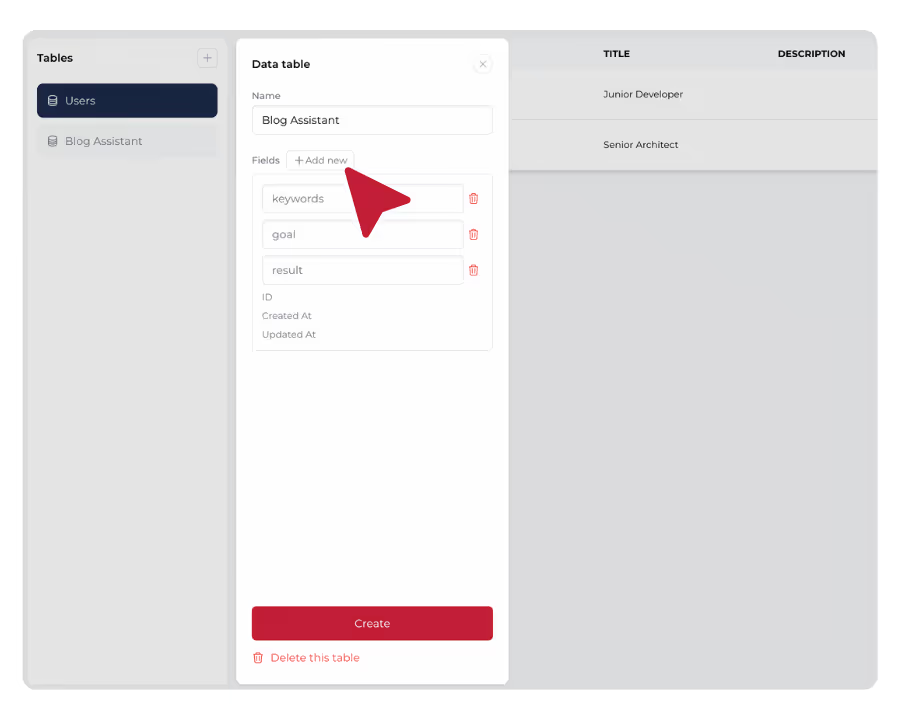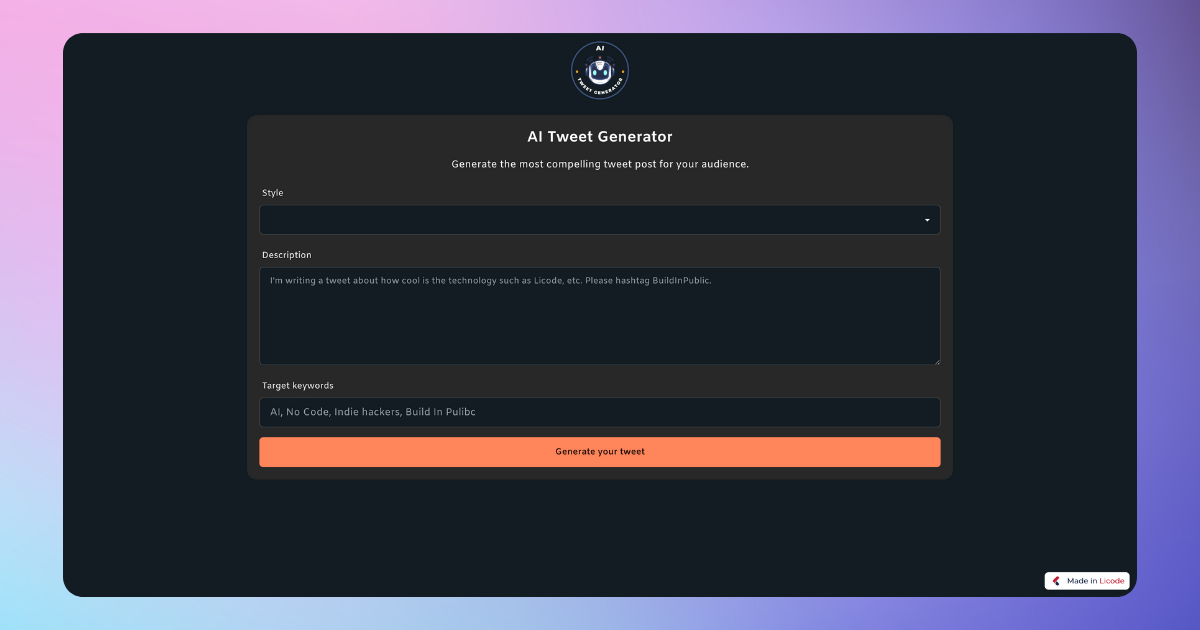Enhance Mental Health Diagnosis Using AI
Explore the future of mental health diagnostics with AI technology.
Understanding AI in Mental Health
Enhancing mental health diagnosis using AI technology is a significant advance in the healthcare industry. Mental health disorders are widespread, yet they're often misdiagnosed due to the complexity and subtlety of symptoms. AI can play a crucial role in helping professionals get more accurate and timely diagnoses, ultimately improving patient outcomes.
Generative AI uses complex algorithms to process vast amounts of data quickly, recognize patterns, and provide insights that might not be visible to human analysts. This capability is a game-changer in the field of mental health diagnostics. It streamlines the initial assessment process, offering objective data that supports clinical decision-making.
How AI Impacts Mental Health Diagnosis
By integrating AI into mental health diagnostics, patients benefit from improved accuracy and faster diagnosis times. For instance, machine learning algorithms can analyze speech patterns, text entries, and even physiological data such as heart rate variability to detect signs of depression or anxiety.
Additionally, AI tools like Natural Language Processing (NLP) allow for the analysis of patients' communications, offering insights into mood disorders or detecting potential suicidal ideation. The precision of AI helps to avoid biases and reduces the time needed for diagnosis, leading to better mental health management.
Implementing AI Solutions
Institutions implementing AI solutions, like using Appaca for building AI mental health platforms, can effectively gather and assess patient data to improve diagnostic processes. Appaca provides an innovative platform for developing AI applications in the mental health sector, enabling practitioners to build tools tailored to their specific needs.
The application of AI will help bridge the gap in regions with fewer mental health professionals, but ethical considerations and proper data management and privacy protocols are crucial for responsible use.
The key principles
Accuracy
AI offers higher accuracy in diagnosing mental health issues through comprehensive data analysis.
Efficiency
AI significantly reduces the time needed to arrive at a diagnosis, speeding up access to care.
Bias Reduction
Tools mitigate bias in diagnosis, leading to a fairer mental health assessment process.
Steps to Build AI Solutions for Mental Health Diagnosis
- Find Your Unique Value Proposition: Determine what sets your mental health diagnosis solution apart.
- Envision AI Utilization: Consider how AI can utilize your unique solution to aid users.
- Create an Account with Appaca: Use Appaca’s platform to start developing your AI tool.
- Prepare Background Knowledge: Gather existing data, studies, and relevant resources to train the AI.
- Build the App Interface: Design a user-friendly interface focusing on end-users’ experiences.
- Customize the AI Model: Ensure the AI model is tailored to diagnose specific mental health issues.
- Add Extra Features: Implement features like mood tracking or virtual therapy session scheduling.
- Market Your Solution: Employ strategies to reach mental health professionals and communities.
For further enhancement, ongoing updates and user feedback integration can refine the AI's reliability and user satisfaction.
Trusted by incredible people at







Enable AI in your app
Licode comes with built-in AI infrastructure that allows you to easily craft a prompt, and use any Large Lanaguage Model (LLM) like Google Gemini, OpenAI GPTs, and Anthropic Claude.


Supply knowledge to your model
Licode's built-in RAG (Retrieval-Augmented Generation) system helps your models understand a vast amount of knowledge with minimal resource usage.
Build your AI app's interface
Licode offers a library of pre-built UI components from text & images to form inputs, charts, tables, and AI interactions. Ship your AI-powered app with a great UI fast.


Authenticate and manage users
Launch your AI-powered app with sign-up and log in pages out of the box. Set private pages for authenticated users only.
Monetize your app
Licode provides a built-in Subscriptions and AI Credits billing system. Create different subscription plans and set the amount of credits you want to charge for AI Usage.


Accept payments with Stripe
Licode makes it easy for you to integrate Stripe in your app. Start earning and grow revenue for your business.
Create custom actions
Give your app logic with Licode Actions. Perform database operations, AI interactions, and third-party integrations.


Store data in the database
Simply create data tables in a secure Licode database. Empower your AI app with data. Save data easily without any hassle.
Publish and launch
Just one click and your AI app will be online for all devices. Share it with your team, clients or customers. Update and iterate easily.

Browse our templates

StrawberryGPT
StrawberryGPT is an AI-powered letter counter that can tell you the correct number of "r" occurrences in "Strawberry".

AI Tweet Generator
An AI tool to help your audience generate a compelling Twitter / X post. Try it out!

YouTube Summarizer
An AI-powered app that summarizes YouTube videos and produces content such as a blog, summary, or FAQ.
Don't take our word for it
I've built with various AI tools and have found Licode to be the most efficient and user-friendly solution. In a world where only 51% of women currently integrate AI into their professional lives, Licode has empowered me to create innovative tools in record time that are transforming the workplace experience for women across Australia.
Licode has made building micro tools like my YouTube Summarizer incredibly easy. I've seen a huge boost in user engagement and conversions since launching it. I don't have to worry about my dev resource and any backend hassle.
FAQ
How does AI improve mental health diagnosis?
AI enhances mental health diagnosis by providing accurate, data-driven insights that complement traditional evaluations. It can access and analyze extensive data efficiently, helping identify issues that might be overlooked by human evaluators.
What are the main challenges of using AI in mental health?
Challenges include ensuring ethical use, maintaining data privacy, and avoiding overreliance on AI. Technical limitations, such as algorithm bias and difficulty in interpreting complex human emotions, also pose significant challenges.
Is AI in mental health diagnosis safe to use?
While AI is generally safe, it must be used responsibly. Adequate data privacy measures and ethical standards should be in place. Proper implementation and validation are crucial to ensure AI is a helpful tool, rather than a standalone solution.
How can I integrate AI into my existing mental health practice?
To integrate AI, consider investing in AI tools specifically designed for mental health. Train on existing data to enhance accuracy. Collaborate with tech experts to smoothly incorporate AI into your service offerings, ensuring it complements your current practice.
Do I need any technical skills to use Licode?
Not at all! Our platform is built for non-technical users.
The drag-and-drop interface makes it easy to build and customize your AI tool, including its back-end logic, without coding.
Can I use my own branding?
Yes! Licode allows you to fully white-label your AI tool with your logo, colors, and brand identity.
Is Licode free to use?
Yes, Licode offers a free plan that allows you to build and publish your app without any initial cost.
This is perfect for startups, hobbyists, or developers who want to explore the platform without a financial commitment.
Some advanced features require a paid subscription, starting at just $20 per month.
The paid plan unlocks additional functionalities such as publishing your app on a custom domain, utilizing premium large language models (LLMs) for more powerful AI capabilities, and accessing the AI Playground—a feature where you can experiment with different AI models and custom prompts.
How can I monetize my AI app?
Licode offers built-in monetization tools that make it simple to generate revenue. You can create subscription plans, set up tiered access, or offer one-time payments for extra AI credits or premium features.
Monetization is powered by Stripe, ensuring secure, seamless payments. Setting up your Stripe account takes only a few minutes, so you can start earning quickly with minimal effort.
Is my data safe with Licode?
We take data security and privacy very seriously with Licode.
All data stored in your app's databases and in your AI model's instructions are encrypted and cannot be retrieved by our teams or by the LLM providers like OpenAI, Google, and Anthropic.
We have implemented GDPR-compliant rules within our systems to ensure that you can always reclaim all data you have uploaded, and that none of your information can be accessed without your prior consent.
In addition, we work with cybersecurity professionals to ensure that all data is hosted and encrypted on a secure server managed by AWS.
How do I get started with Licode?
Getting started with Licode is easy, even if you're not a technical expert.
Simply click on this link to access the Licode studio, where you can start building your app.
You can choose to create a new app either from scratch or by using a pre-designed template, which speeds up development.
Licode’s intuitive No Code interface allows you to build and customize AI apps without writing a single line of code. Whether you're building for business, education, or creative projects, Licode makes AI app development accessible to everyone.
What kind of experience will my audience have with the AI app?
Your app will feel like a personalized extension of your content.
Users can interact with the AI based on the resources you provide, making the experience feel like they’re engaging directly with your expertise.

